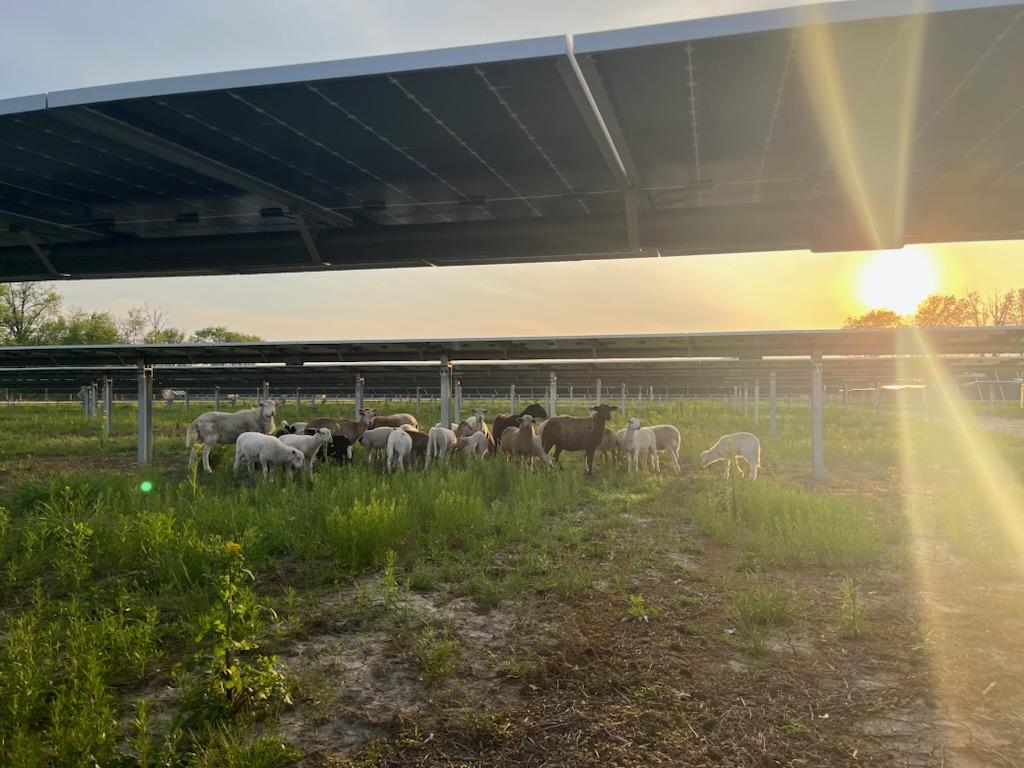NEW: We Made the List: America's Top 100 Most Loved Placed to Work
Regenerative Business Practices: Maximizing Positive Impact with Agrivoltaics
May 16, 2023

Updated 12/06/23
Setting science-based emissions targets for decarbonization is an excellent start, but reducing the negative environmental and social impacts of business initiatives should be expected, not praised. With consumers' expectations rapidly evolving, how can companies go beyond sustainability, do more good for the planet, and prioritize humanity’s future health and well-being? Keep reading to learn about regenerative business practices, and how Pivot Energy incorporates agrivoltaics into its process for developing community solar farms.
What Are Regenerative Business Practices?
Rather than focussing solely on decarbonization, or reducing their carbon footprint, regenerative businesses are more holistically concerned with enriching our collective human experience. Depending on your industry, region, or target audience, the specifics will vary; nonetheless, a regenerative business cares about more than just profit as it implements altruistic measures, including responsible manufacturing processes, support systems for the local economy, guaranteed safe working environments, while continuously calculating and reducing its net environmental impact.
As a Certified B Corporation in the renewable energy sector, Pivot strives to maximize the positive impact of its clean energy projects. Along with other leading solar developers, Pivot leverages agrivoltaics — the combination of photovoltaic arrays and agricultural land uses — to optimize its net impact. Even before agrivoltaics comes into play, solar farm development is already an excellent option for landowners who need a new reliable source of income. Unfortunately, farmers and ranchers are facing declining land productivity, driven by changing weather patterns, extended drought, and other causes. Solar farm development (especially with agrivoltaics) offers these landowners a way to keep their land in production, enrich the soil beneath the panels, create a pollinator-friendly habitat, and increase biodiversity.
When developing community solar farms, regenerative business practices are markedly better for the health of the soil and provide more long-term economic and educational benefits to hosting communities. Below, we’ll share some of the conservation and land stewardship efforts that we consider essential components of our cohesive regenerative business strategy.
Pivot’s Regenerative Business Strategy
The particular landscape of each solar farm predetermines what is possible in terms of agrivoltaics. Similarly, we will always cater our efforts to the landowner’s unique logistical needs and preferences. For instance, Pivot always conducts environmental, archaeological, and cultural resources surveys; we also ensure that our projects comply with all local wildlife and wetland regulations. Additionally, all of our projects are registered on DriftWatch to protect specialty crops and apiaries against pesticide drift or application on the property.
Throughout construction, our primary goal is to minimize our impact on the land. We stick to low-till construction practices whenever possible and refrain from leveling to maintain healthy topsoil. Additionally, we border the site with wildlife-friendly fencing that is designed to keep out all animals large enough to damage the equipment (including humans).
At the early stages of our projects, we often plant Fuzz and Buzz, a seed mix of native grasses — taking into consideration the site’s elevation, water levels, and more – to support soil moisture and forage productivity. Panels provide much-needed shading for vegetation and also help maintain solar moisture. When possible, we replace fossil-fuel powered mowing techniques with sheep grazing (as long as it is deemed safe for the sheep). It is worth noting that the plants grown from this seed mix are compatible with animal grazing. Additionally, we will add beekeeping and honey production to certain sites, creating pollinator-friendly habitats.
The addition of agrivoltaics is seamless from the landowners' perspective. Pivot is responsible for identifying and managing the relationships with all graziers and/or beekeepers, and matching them up with the local landowner.
At the end of the solar lease, thanks to regenerative business practices, we return the site to the same, or better, condition before development. We establish a decommissioning plan for every project, which includes recycling and/or reusing solar equipment when possible.
Regenerative Businesses Maximize the Benefits For All
Regenerative business practices truly benefit everyone in the long run. In exchange for going out of your way to provide communities with long-term environmental, economic, and educational benefits, your products and services will become more appealing to consumers that are keen to support organizations that create positive environmental and social impacts. For instance, the agrivoltaics model makes solar projects even more appealing to community solar subscribers.
If you are interested in learning more about regenerative business practices, agrivoltaics, or wish to support the development of a solar site in your neighborhood, reach out to us today.







